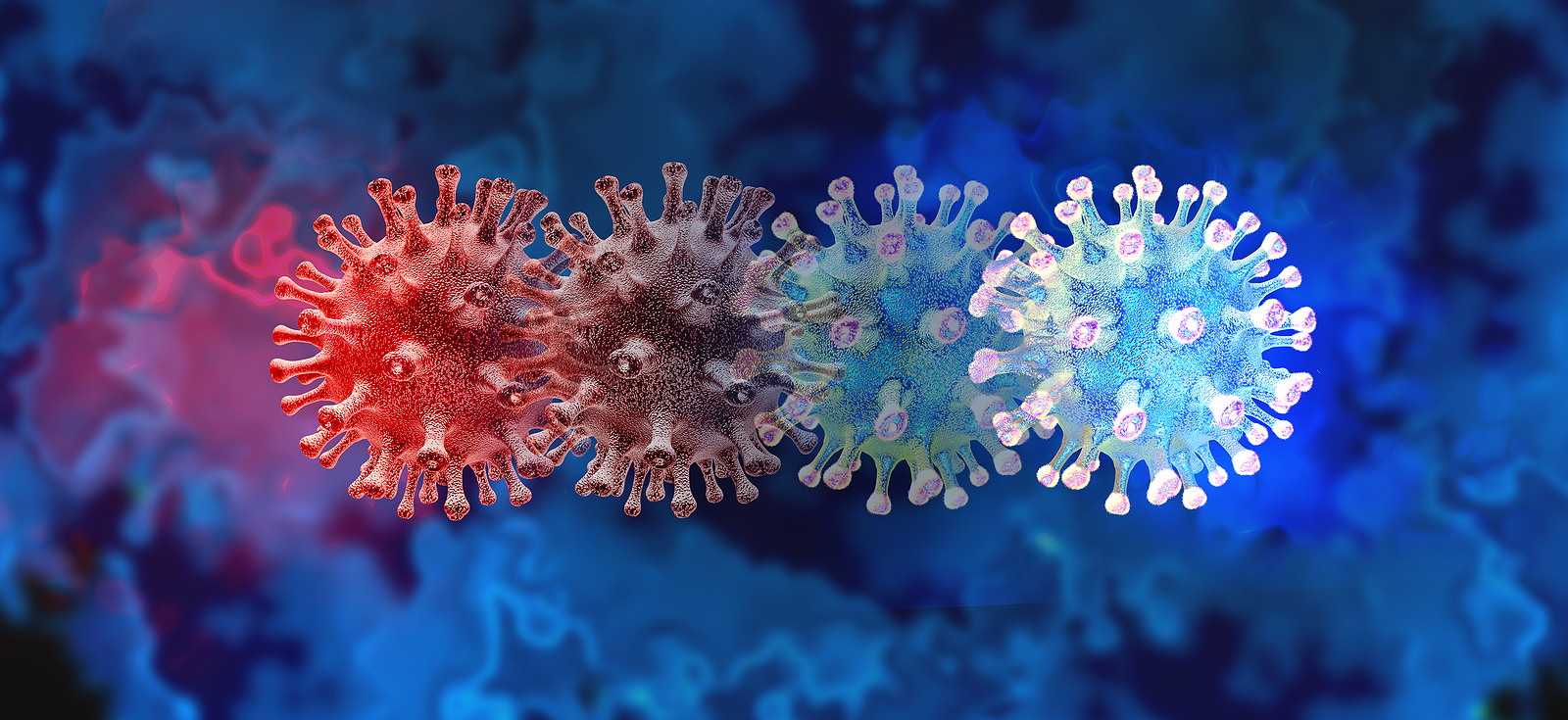
On November 26, 2021, The World Health Organization released a statement on the COVID-19 variant, Omicron. This is the latest mutation of the COVID-19 virus, discovered in South Africa on November 9, 2021. This is what we know to date about the Omicron Variant.
Who Watches Mutations of COVID?
The Technical Advisory Group on SARS-CoV-2 Virus Evolution (TAG-VE) is an independent group of experts that periodically monitors and evaluates the evolution of SARS-CoV-2 and assesses if specific mutations and combinations of mutations alter the behavior of the virus. The TAG-VE was convened on 26 November 2021 to assess the SARS-CoV-2 variant: B.1.1.529, otherwise known as the Omicron variant. (WHO 2021)
What is a Mutation?
Viruses aren’t living things. They need a host to survive – like the cells in your body. Once a virus enters your body, it reproduces and spreads. The more a virus circulates in a population of people, the more it can change. All viruses change but not always at the same rate.
The rate of change varies from virus to virus. Some change very fast, such as the influenza virus. That is why we get a new flu vaccine every year. (UnityPoint, 2021)
What’s the Difference Between Mutations, Variants and Strains?
- Mutation. When a virus replicates, and the end copy has differences (in DNA or RNA), those differences are mutations.
- Variant. When you accumulate enough mutations, you get a variant.
- Strain. When you can prove a variant truly has new biologic capabilities, then you can call it a strain.
Every time the virus jumps to a new person, its chance of mutation increases. If the virus keeps running into vaccinated people, it hits a wall and can’t keep spreading. Decreasing the number of infections in a community is the best way to prevent new variants from developing.
What We Know About Omicron
The mission for scientists right now is to find out why the virus mutated to this new variant. Next, we need to know how the virus mutated to this variant.
Staying ahead of these variants is key to keeping people safe.
Right now, we don’t know answers to these questions regarding the Omicron variant. It will be several weeks before it can be evaluated by the global science community. The race now is to see if current COVID vaccines have any effectiveness against Omicron.
The Delta Variant
The Delta variant is now the predominant SARS CoV-2 variant, accounting for more than 99% of COVID-19 cases and leading to an overwhelming increase in hospitalizations in some states.
Delta is believed to be more than twice as contagious as previous variants, and studies have shown that it may be more likely than the original virus to put infected people in the hospital. People who are not vaccinated are most at risk, and the highest spread of cases and severe outcomes is happening in places with low vaccination rates. (Katella, 2021)
Delta also has known “breakthrough” cases, which means vaccinated people are getting the virus but with less severe symptoms.
Delta Vs. Omicron
When a new variant is known, scientists want to know as much about it as possible so we can mitigate the severity of symptoms. Therefore, we need to find out as much as possible as quickly as possible about the Omicron variant.
What we see so far is that Omicron may not be as virulent as Delta. (Fox, 2021)
Words of observation and tendency are used until we can produce scientific data, which takes time. So what can we do until we know more about the Omicron variant? We can continue to do what we know about how this virus spreads and follow current COVID health and safety precautions.
CDC Vaccine Guidance
The CDC strengthened its guidance on boosters, saying all adults should get booster shots six months after finishing the first two doses of Moderna’s or Pfizer/BioNTech’s vaccine and two months after getting Johnson & Johnson’s single-dose vaccine. (CDC, 2021)
We know what it takes to prevent the spread of COVID-19. CDC recommends people follow prevention strategies such as wearing a mask in public indoor settings in areas of substantial or high community transmission, washing your hands frequently, and physically distancing from others. CDC also recommends that everyone 5 years and older protect themselves from COVID-19 by getting fully vaccinated.
Works Cited
World Health Organization. (n.d.). Update on Omicron. World Health Organization. Retrieved November 30, 2021, from https://www.who.int/news/item/28-11-2021-update-on-omicron.
World Health Organization. (n.d.). Classification of omicron (B.1.1.529): SARS-COV-2 variant of concern. World Health Organization. Retrieved November 30, 2021, from https://www.who.int/news/item/26-11-2021-classification-of-omicron-(b.1.1.529)-sars-cov-2-variant-of-concern.
Centers for Disease Control and Prevention. (2021, November 26). CDC statement on B.1.1.529 (omicron variant). Centers for Disease Control and Prevention. Retrieved November 30, 2021, from https://www.cdc.gov/media/releases/2021/s1126-B11-529-omicron.html.
Katella, K. (2021, November 19). 5 things to know about the Delta variant. Yale Medicine. Retrieved November 30, 2021, from https://www.yalemedicine.org/news/5-things-to-know-delta-variant-covid.
Health, U. P. (2021, July 12). Why viruses mutate, explained by an infectious disease expert. UnityPoint Health. Retrieved November 30, 2021, from https://www.unitypoint.org/article.aspx?id=db428f77-6e61-497b-91ce-1317a3396dd8.
Fox, M. (2021, November 30). Omicron vs. Delta: More mutations don’t necessarily make a meaner covid-19 virus. CNN. Retrieved November 30, 2021, from https://www.cnn.com/2021/11/30/health/omicron-delta-variant-comparison/index.html.





